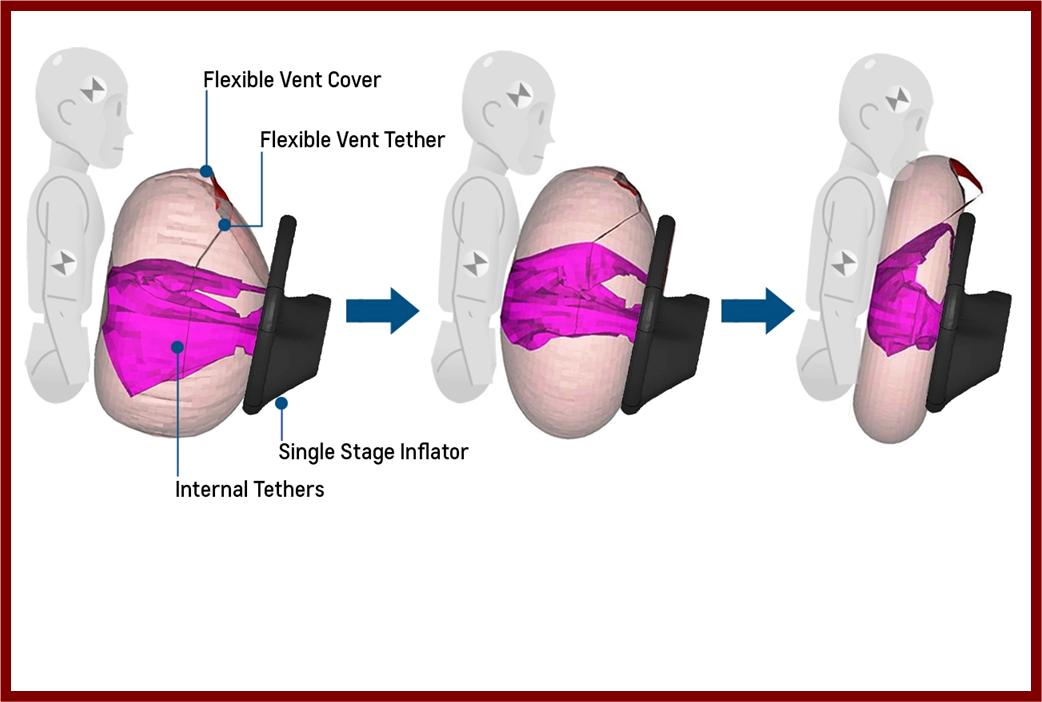
Of the $200 million fine, $70 million is payable in cash, $130 million would be due if Takata fails to meet its commitments or if more Safety Act violations are discovered.
The U.S. DOT today issued the largest civil penalty in NHTSA’s history to Takata for violating the Motor Vehicle Safety Act. In an unprecedented move, NHTSA’s authority is being used to accelerate recall repairs to millions of affected vehicles. More than 23 million inflators, 19 million vehicles and 12 automakers are affected by the action.
The Consent Order requires Takata to phase out the manufacture and sale of inflators that use phase-stabilized ammonium nitrate propellant. The unique explosive is believed to be a factor in ruptures that have caused seven deaths and nearly 100 injuries in the United States.
 NHTSA said the actions also prioritize recalls so the greatest safety risks are addressed first, and set deadlines for future recalls of other Takata inflators that use a suspect propellant unless they are proved safe.
NHTSA said the actions also prioritize recalls so the greatest safety risks are addressed first, and set deadlines for future recalls of other Takata inflators that use a suspect propellant unless they are proved safe.
The Consent Order also lays out a schedule for recalling all Takata ammonium nitrate inflators now on the roads; unless the company can prove they are safe or can show it has determined why its inflators are prone to rupture.
“For years, Takata has built and sold defective products, refused to acknowledge the defect, and failed to provide full information to NHTSA, its customers, or the public,” said Transportation Secretary Anthony Foxx. “The result of that delay and denial has harmed scores of consumers and caused the largest, most complex safety recall in history. Today’s actions represent aggressive use of NHTSA’s authority to clean up these problems and protect public safety.”
As part of NHTSA’s Consent Order to Takata, the company has admitted that it was aware of a defect but failed to issue a timely recall, a violation of the Motor Vehicle Safety Act. In connection with the Consent Order, NHTSA also issued findings that Takata provided NHTSA with selective, incomplete or inaccurate data dating back to at least 2009, and continuing through the agency’s current investigation, and that Takata provided its customers with selective, incomplete or inaccurate data.
The order also imposes oversight on Takata for five years, including an independent monitor selected by NHTSA to assess, track and report the company’s compliance with the phase-out schedule and to oversee the Coordinated Remedy Program.
“Today, we are holding Takata responsible for its failures, and we are taking strong action to protect the traveling public,” said NHTSA Administrator Mark Rosekind. “We are accelerating Takata recalls to get safe air bags into American vehicles more quickly, ensuring that consumers at the greatest risk are protected, and addressing the long-term risk of Takata’s use of a suspect propellant.”
Separately, a so-called Coordinated Remedy Order issued to Takata and the 12 vehicle manufacturers involved in the existing Takata air bag inflator recalls directs them to prioritize their safety recalls based on risk, and establishes a schedule by which they must have sufficient parts on hand to remedy the defect for all affected vehicles.
In the Coordinated Remedy Order NHTSA is using for the first time legal authority which was established in the 2000 TREAD Act to allow the agency to accelerate safety defect repairs if manufacturers’ remedy plans are likely to put Americans at risk. NHTSA announced in June that it was considering use of that authority, and has since gathered information and comment from vehicle manufacturers, parts suppliers and the public as part of a proceeding to determine whether and how to best address recalls.
Under the Coordinated Remedy Order, vehicle manufacturers must ensure they have sufficient replacements on hand to meet consumer demand for the highest-risk inflators by June 2016, and to provide final remedies for all vehicles – including those that will receive interim remedies because of supply and design issues – by the end of 2019.

